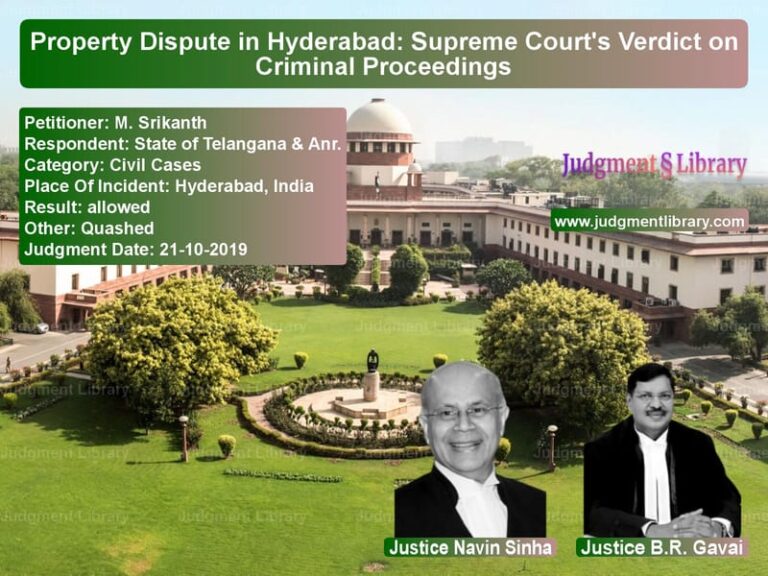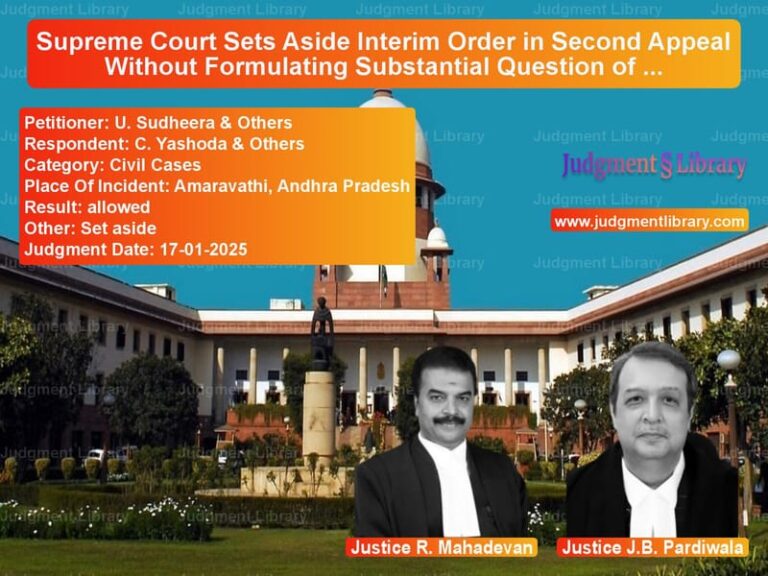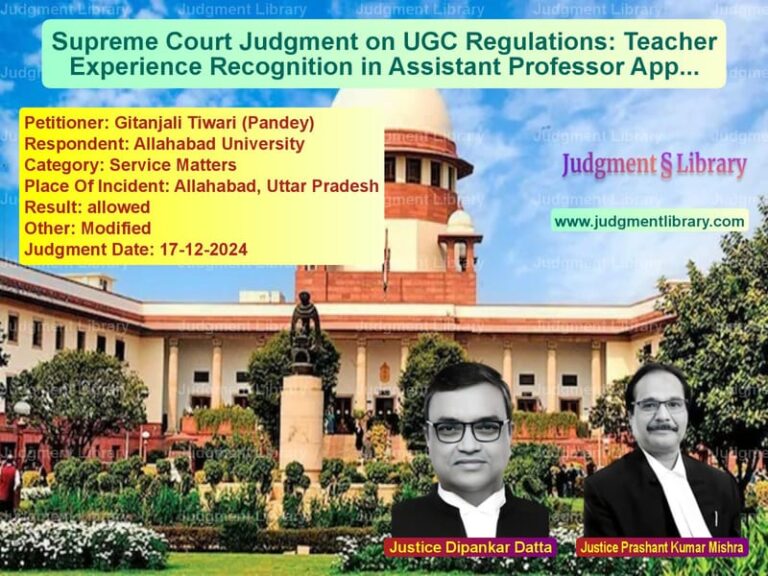Armed Forces Tribunal Order Overturned: Supreme Court Rules on Army Court Martial Case
The Supreme Court of India recently ruled on a crucial case involving the dismissal of two army personnel, Neeraj Kumar Dhaka and Sandeep Kumar, convicted of theft by a District Court Martial (DCM). The ruling examined the legality of the Armed Forces Tribunal’s decision to set aside their conviction and dismissal from service. The Supreme Court overturned the Tribunal’s ruling and upheld the DCM’s decision while modifying the sentence to the period already undergone.
Background of the Case
The case arose from an incident in the Indian Army involving the theft of two 9mm Browning pistols from the 71 Armoured Regiment. The theft was discovered during a routine check, leading to an investigation and a subsequent Court Martial of the accused soldiers.
The Armed Forces Tribunal had earlier set aside the conviction and ordered their reinstatement, but without back wages. The Union of India appealed against this decision, arguing that the Tribunal had overstepped its jurisdiction and erred in evaluating the evidence.
Arguments of the Appellants (Union of India)
The Union of India, represented by its counsel, made the following arguments:
- The Tribunal had overstepped its jurisdiction by interfering with the DCM’s findings when no legal errors or procedural irregularities were present.
- The conviction was based on confessions made by the accused in front of multiple officers and recorded on video.
- The Tribunal had misinterpreted the Army Order No. 256 of 1972, which deals with the admissibility of confessions.
- The secondary evidence regarding certain documents, which the Tribunal had rejected, was lawfully admitted under the Indian Evidence Act.
- The procedural lapses in routine checks were separate issues and did not negate the theft committed by the accused.
Arguments of the Respondents (Accused Soldiers)
The respondents, Neeraj Kumar Dhaka and Sandeep Kumar, raised the following counterarguments:
- Their confessions were obtained under coercion, including physical assault and threats to their families.
- The physical check of weapons was not conducted properly before the loss was reported.
- The handwritten confessions should not have been relied upon as they were forced.
- The Tribunal had rightly observed that the case was based solely on confessions without independent corroborative evidence.
- Secondary evidence should not have been allowed, as the originals were missing.
Supreme Court’s Analysis
The Supreme Court conducted a thorough review of the case, focusing on the legal and procedural aspects of the Tribunal’s decision. The key observations of the Court were:
- The Tribunal had misinterpreted the Army Order No. 256 of 1972, which does not prohibit confessions made to Army officers, only those made to Military Police Officers.
- The confessions were recorded in the presence of multiple superior officers and video-recorded, making coercion claims unlikely.
- The secondary evidence was correctly admitted since the originals were lost in transit but had been seen by credible witnesses.
- The Tribunal was not justified in reversing the conviction solely based on procedural lapses in routine weapon checks.
- The legal standard under Section 15 of the Armed Forces Tribunal Act required an error of law or material irregularity for interference, which was absent.
Final Judgment
The Supreme Court ruled in favor of the Union of India, restoring the DCM’s conviction of the accused. However, the Court reduced their sentence to the period already served. The ruling stated:
“Since the accused have given detailed statements touching the incriminating circumstances appearing in prosecution evidence and also retracted confessional statements made by them, it cannot be said that putting of incriminating circumstances to the accused have caused any prejudice to the accused.”
Implications of the Judgment
This decision reinforces the principle that armed forces disciplinary proceedings should not be interfered with lightly by judicial bodies unless clear errors of law or procedural irregularities exist. The judgment ensures that the chain of command and the military justice system remain intact while allowing fair adjudication of appeals.
Petitioner Name: Union of India & Ors..Respondent Name: Sandeep Kumar & Others.Judgment By: Justice L. Nageswara Rao, Justice Hemant Gupta.Place Of Incident: Pokhran Field Firing Ranges, Rajasthan.Judgment Date: 13-09-2019.
Don’t miss out on the full details! Download the complete judgment in PDF format below and gain valuable insights instantly!
Download Judgment: Union of India & Ors vs Sandeep Kumar & Othe Supreme Court of India Judgment Dated 13-09-2019.pdf
Direct Downlaod Judgment: Direct downlaod this Judgment
See all petitions in Bail and Anticipatory Bail
See all petitions in Custodial Deaths and Police Misconduct
See all petitions in Judgment by L. Nageswara Rao
See all petitions in Judgment by Hemant Gupta
See all petitions in allowed
See all petitions in Modified
See all petitions in supreme court of India judgments September 2019
See all petitions in 2019 judgments
See all posts in Criminal Cases Category
See all allowed petitions in Criminal Cases Category
See all Dismissed petitions in Criminal Cases Category
See all partially allowed petitions in Criminal Cases Category







